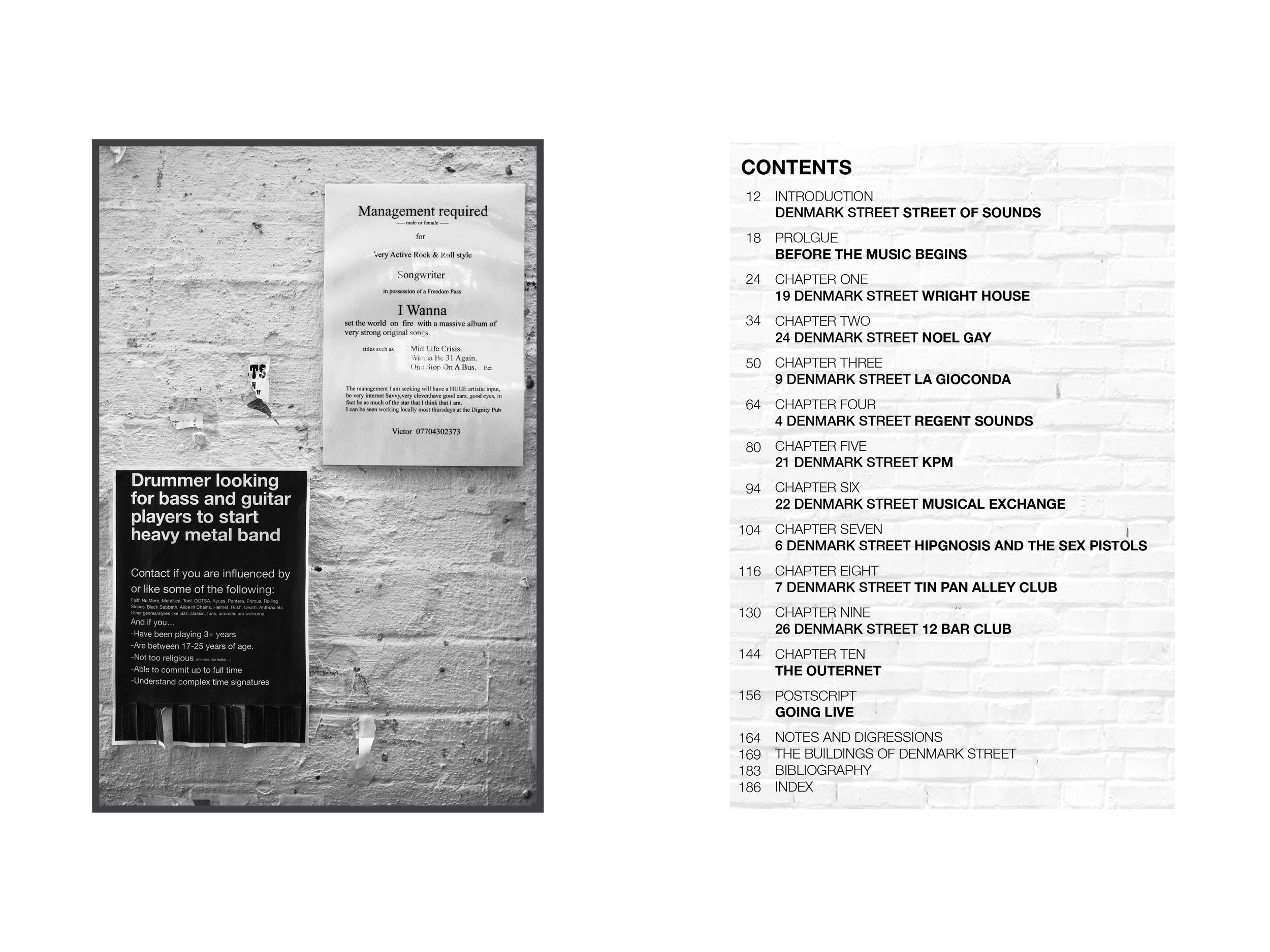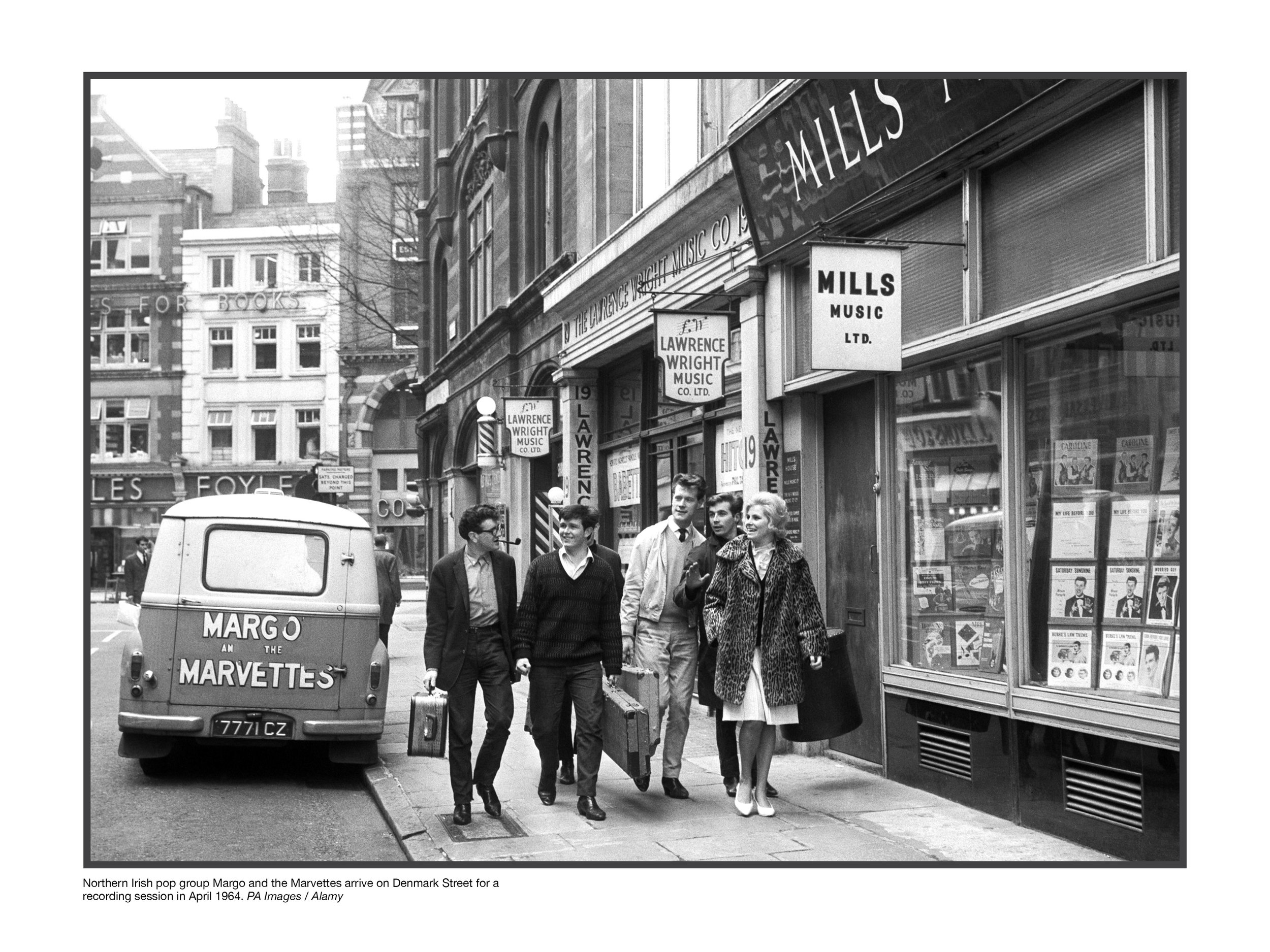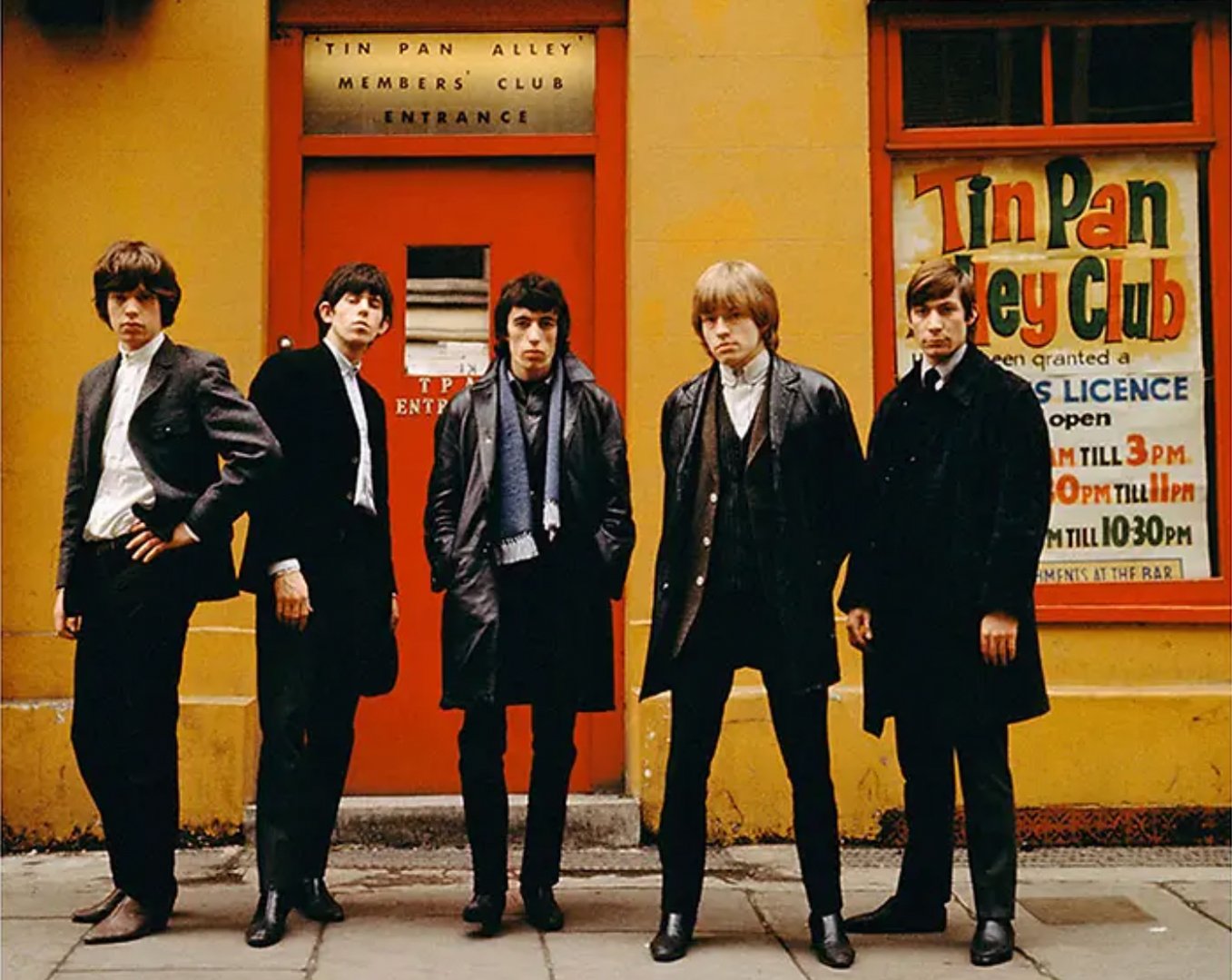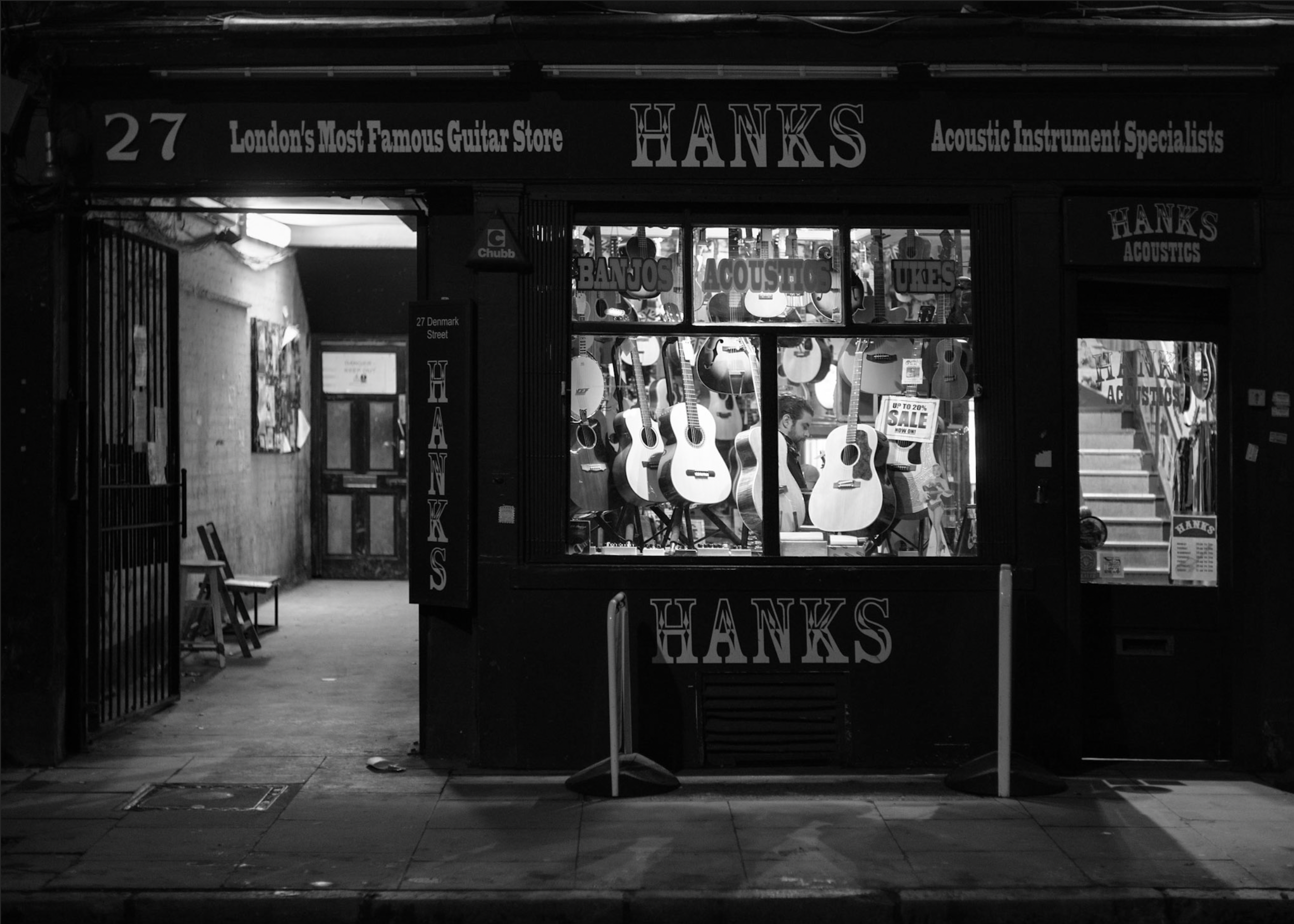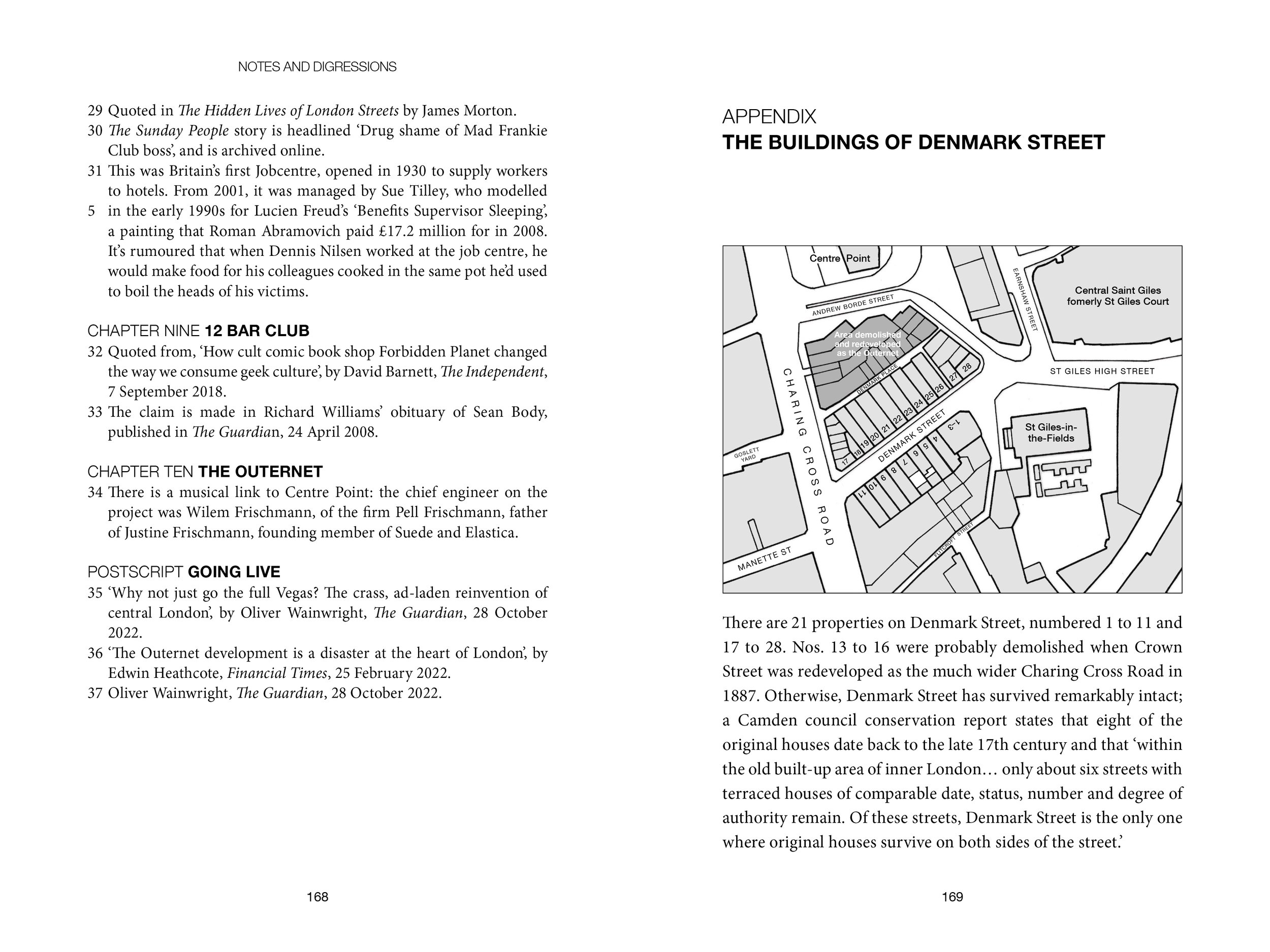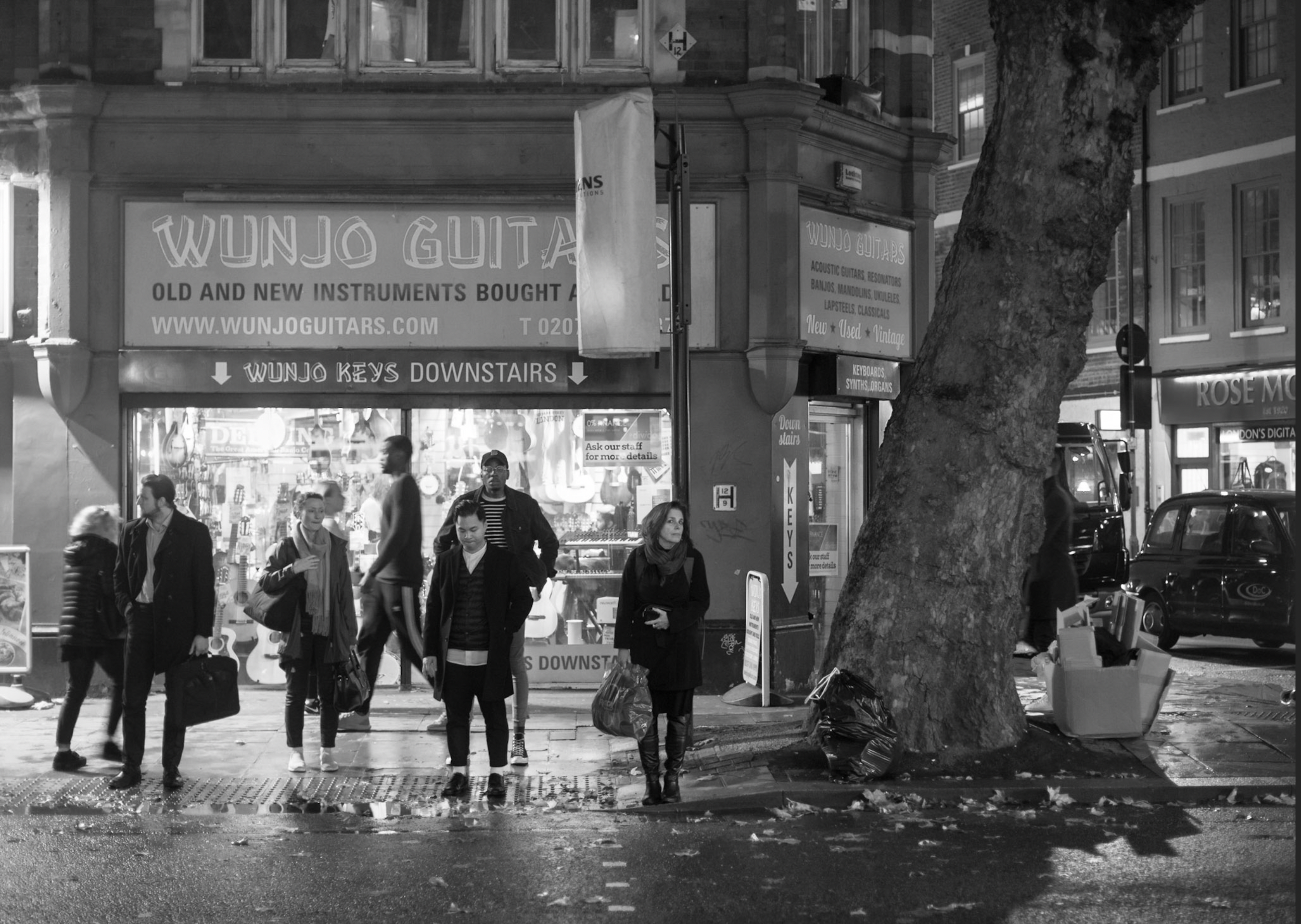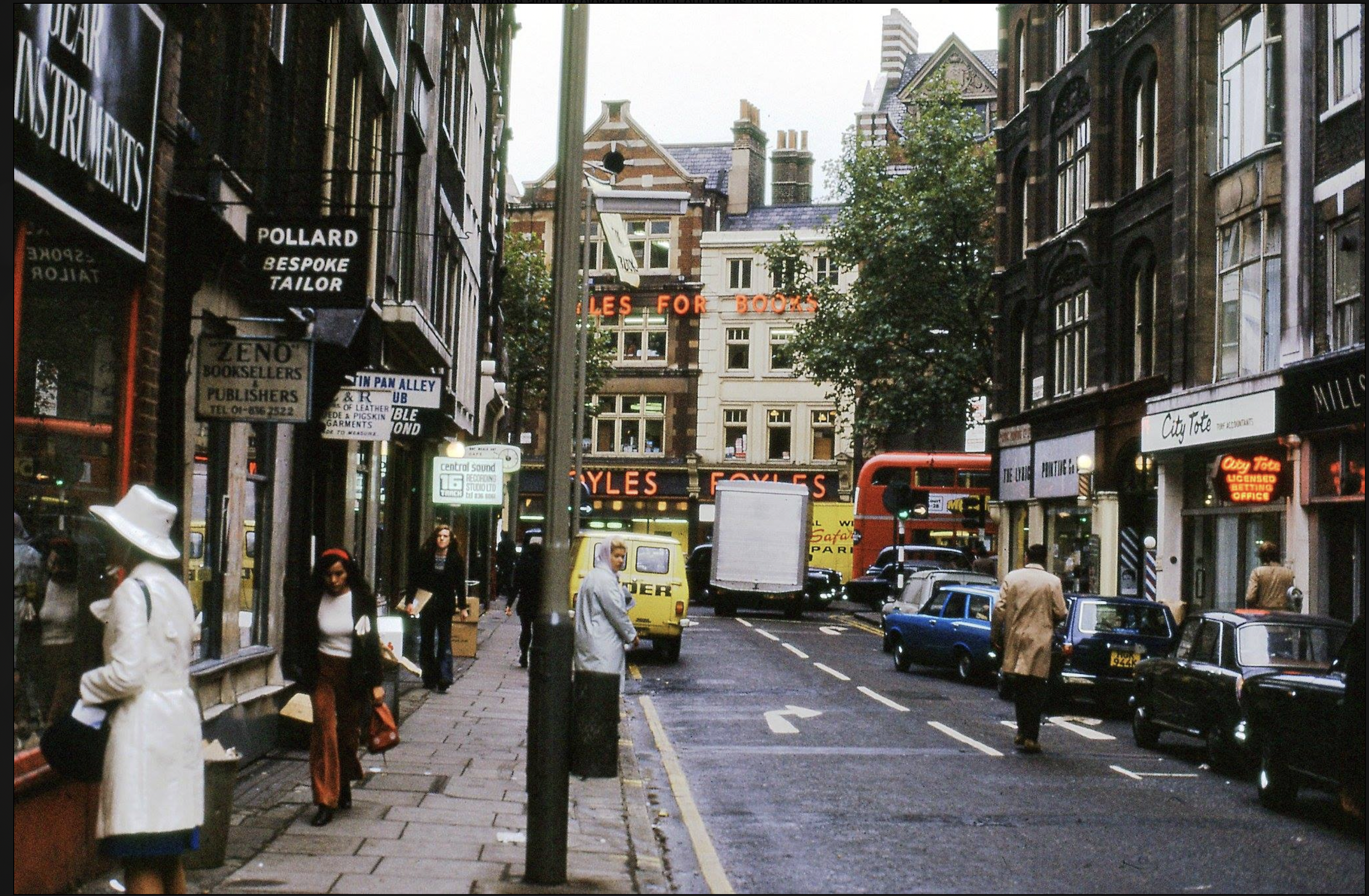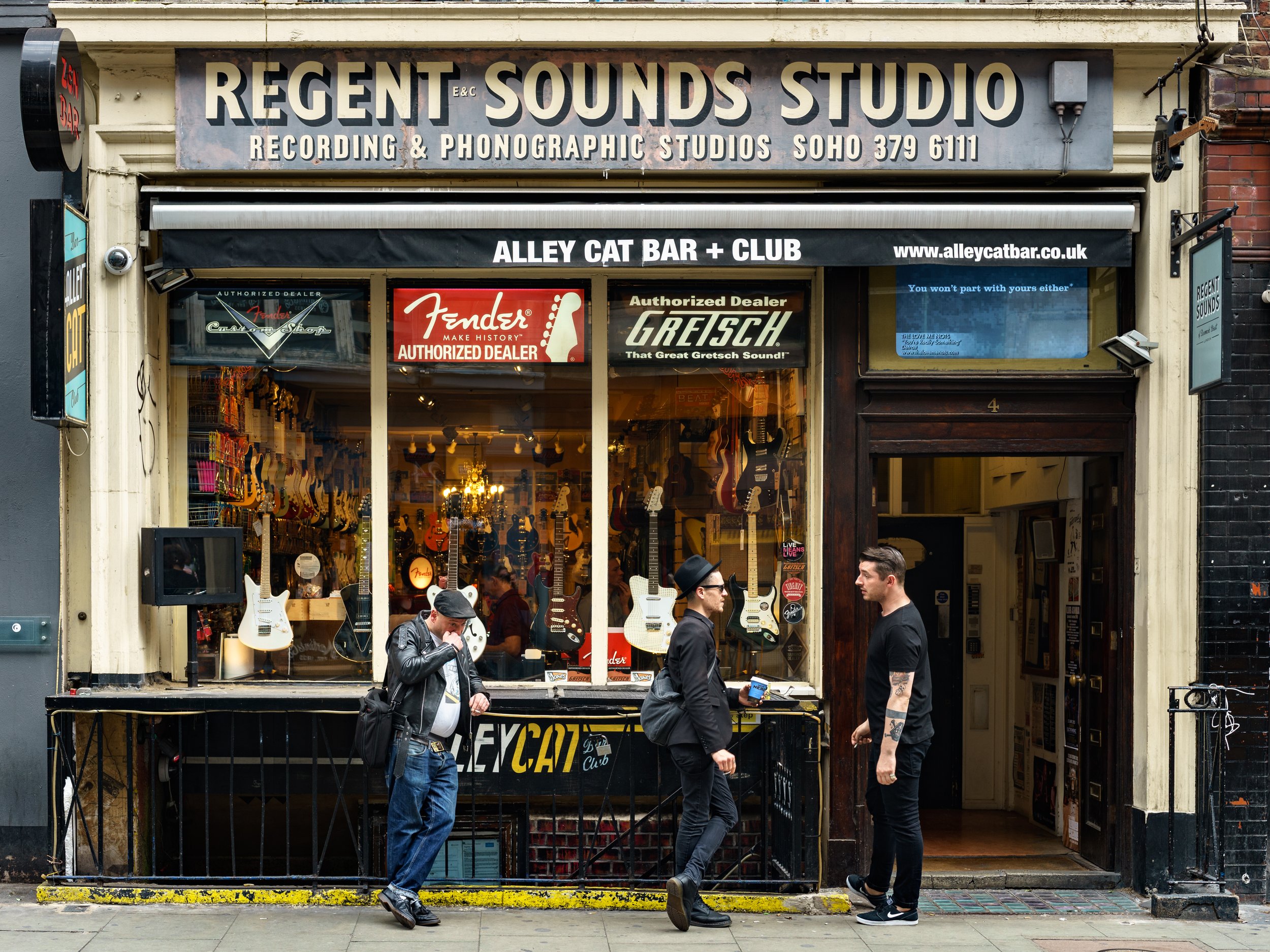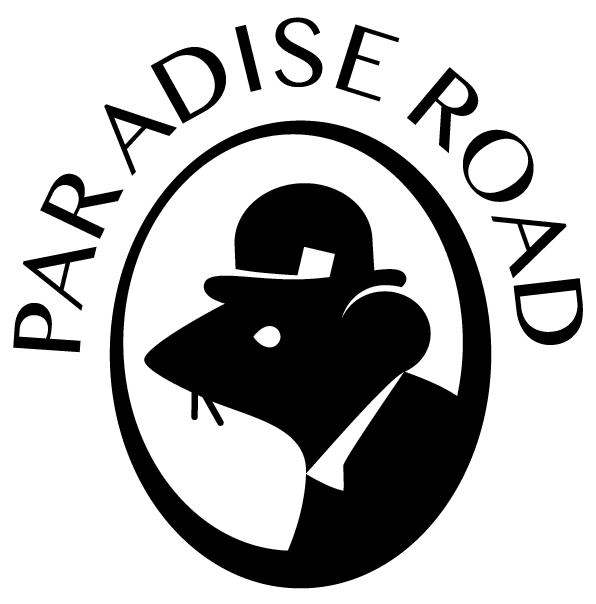Denmark Street: London’s Street of Sounds
By Peter Watts
Depending on your age, Denmark Street is checking the walls for band members-wanted notices; drooling over the displays of guitars in the music-shop windows; bourbon-tinged nights at the 12 Bar; unearthing out-of-print volumes on Dylan at Helter Skelter; collecting autographs outside the offices of Acid Jazz Records; eavesdropping on journalists conducting interviews at the Gioconda. For musicians and songwriters, Denmark Street was nothing less than the gateway into the business.
Britain’s own Tin Pan Alley, Denmark Street was at one time alive with the sound of hammered pianos, and sung melodies and choruses. Its songwriters knocked out tunes on the fly and rushed to the street to sell them to pay for the next round of drinks. The street’s importance was such that the Melody Maker and the New Musical Express were both started here.
The street’s heyday was the 1960s however, when musicians would shop for guitars in between visiting managers and publishers or recording in one of the studios. The Rolling Stones and The Kinks came here, so did Donovan and Jimmy Page, Eric Clapton and Elton John, Jimi Hendrix and Jeff Beck. A popular dive was La Gioconda, a cafe/bar in which most members of the nascent R&B revolution visited at some point or other – David Bowie was said to practically live there.
In later years, the street declined in importance – although when Malcolm McLaren was looking for a rehearsal space for the Sex Pistols he was delighted to find room in Denmark Street, installing his upstarts in the heart of the traditional music industry like Greek soldiers inside the Trojan Horse.
The street continues its music associations, mainly in the form of its many instrument shops. How long it can retain that heritage in the face of the rapacious demands of the London property market combined with the way we play and consume music, remains to be seen.
The story of Denmark Street, London’s street of sound, is the story of popular music in Britain, and the people who made, bought and sold it.
Hardback, 2o0 pages, with black & white photography by Rob Telford
The Author
Peter Watts
Peter Watts is a journalist who has worked in the UK national media since 1993, starting at The Sunday Times, later becoming features writer at Time Out. He now freelances, writing mainly about London and music for The Times, Independent, Observer, Uncut, Prospect, and New Statesman. His previous book was Up in Smoke: The Failed Dreams of Battersea Power Station, also published by Paradise Road. He lives in south London and blogs at greatwen.com

